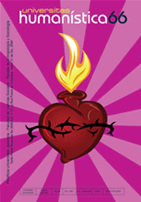Resumen
Mediante el ejercicio de la antropología en un contexto legal, me fue posible observar la existencia y consecuencias de actos crueles y violentos ejercidos por grupos armados no estatales –en este caso de paramilitares–, que por su estructura, metodología y organización, me permiten hacer un símil de dichos actos con lo que he denominado una «Escuela de la Muerte» y el funcionamiento de una escuela académica –para la vida–. Reflexiono además respecto a la posición de la víctima, del victimario y de la mía como perito forense y como persona que se inmiscuye dentro de esa Escuela de la muerte. Lo anterior parte de una descripción y estudio de un caso forense que representa una de varias diligencias judiciales realizadas por parte de equipos forenses estatales antes de entrar en vigor la Ley 975, conocida como la Ley de Justicia y Paz de 2005, la cual «tiene por objeto facilitar los procesos de paz y la reincorporación individual o colectiva a la vida civil de miembros de grupos armados al margen de la ley, garantizando los derechos de las victimas a la verdad, la justicia y la reparación» 
La revista Universitas Humanística se encuentra registrada bajo la licencia Creative Commons Reconocimiento 4.0 Internacional. Por lo tanto, esta obra se puede reproducir, distribuir y comunicar públicamente en formato digital, siempre que se reconozca el nombre de los autores y a la Pontificia Universidad Javeriana. Se permite citar, adaptar, transformar, autoarchivar, republicar y crear a partir del material, para cualquier finalidad (incluso comercial), siempre que se reconozca adecuadamente la autoría, se proporcione un enlace a la obra original y se indique si se han realizado cambios. La Pontificia Universidad Javeriana no retiene los derechos sobre las obras publicadas y los contenidos son responsabilidad exclusiva de los autores, quienes conservan sus derechos morales, intelectuales, de privacidad y publicidad.
El aval sobre la intervención de la obra (revisión, corrección de estilo, traducción, diagramación) y su posterior divulgación se otorga mediante una licencia de uso y no a través de una cesión de derechos, lo que representa que la revista y la Pontificia Universidad Javeriana se eximen de cualquier responsabilidad que se pueda derivar de una mala práctica ética por parte de los autores. En consecuencia de la protección brindada por la licencia de uso, la revista no se encuentra en la obligación de publicar retractaciones o modificar la información ya publicada, a no ser que la errata surja del proceso de gestión editorial. La publicación de contenidos en esta revista no representa regalías para los contribuyentes.


